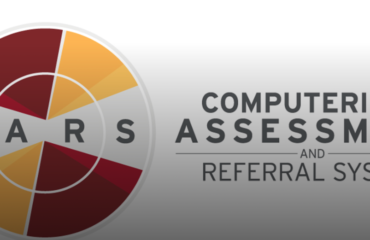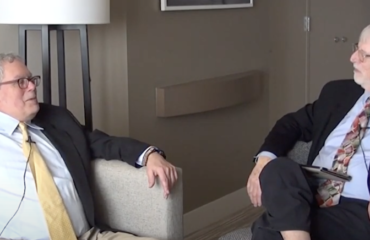Justice Speaks Podcast Episode #48
Justice Speaks podcast continues its series about State Treatment Court Associations, interviewing Judge Steven Manley, President of the California Association of Collaborative Court Professionals (CACC). This episode is sponsored by Reconnect.
Background
Judge Manley has been the President for the CACC for approximately 20 years. He describes that he is only the second person to head the Association since its inception. The judge shared that he has been a judge for 30 years, after the Governor’s appointment in 1993. He first considered the concept of Treatment Courts, or Collaborative Courts as they are called in California, after recognizing that he was sentencing individuals to prison and not seeing a productive end. Judge Manley noted that he saw courts primarily using punishment with those being sentenced and felt other options were needed. Drug Courts appeared to offer a solution.
Judge Manley has played a leadership role in influencing Collaborative Court policy in California, and described how he has worked to obtain state funding for the Treatment Courts. He stated that while there has been support from the state, obtaining funding remains a challenge for the Collaborative Court programs.

The Association
When the California Association began, it was very small, only 40-50 members. Through the years, membership has slowly but steadily grown to a point where the 2023 conference saw its largest attendance ever. After its inception, the CACC participated in the National Association of Drug Court Professionals’ (NADCP) National Congress of Drug Court Associations, which was an early effort to establish standards in policies and practices in Drug Courts across the country. The Association soon began working on two primary goals:
- To work on policy impacting Collaborative Courts in the state; and,
- To provide training and education on treatment and best practices to California’s Collaborative Court practitioners.
Judge Manley described the challenges of running an association without paid staff, and praised what the CACC has been able to accomplish with its volunteers. He said the Association has used the conferences to highlight programs and display innovative ideas for everyone. Furthermore, California Collaborative Courts are invited to come as teams whenever possible. He talked about the difficulties many practitioners encounter in attending CACC conferences and was particularly pleased that this year’s conference saw two Presiding Judges and two elected District Attorneys participate in the opening plenary.
Trends in California Collaborative Courts
The Judge described that recent changes in California law, where drug possession and use laws have been reduced to misdemeanors have made it difficult for many courts to maintain their populations. He said in response, courts have begun to do something he believed Collaborative Courts should have been doing for some time, working with more serious cases and individuals who have significant needs.
The interview closes with Judge Manley describing his role in launching Community Assistance, Recovery and Empowerment (CARE) Courts. He describes that CARE Courts are designed to serve those most resistant to intervention and treatment, those with serious mental illnesses. The courts are designed to work with, and empower families, so that those who cannot help themselves can get help. Our time ran out before the Judge could get into detail about the new CARE Court model, so we anticipate inviting him back to participate in a second interview. We look forward to hearing more about his vast experience in the Collaborative Courts at both the state and national level.
We wish to thank Reconnect for sponsoring this episode.
Additional Resource
You can also watch this interview by going to the Justice Speakers Institutes’ YouTube Channel or by clicking here.
Get more articles like this
in your inbox
Subscribe to our mailing list and get the latest information and updates to your email inbox.
Thank you for subscribing.
Something went wrong.







